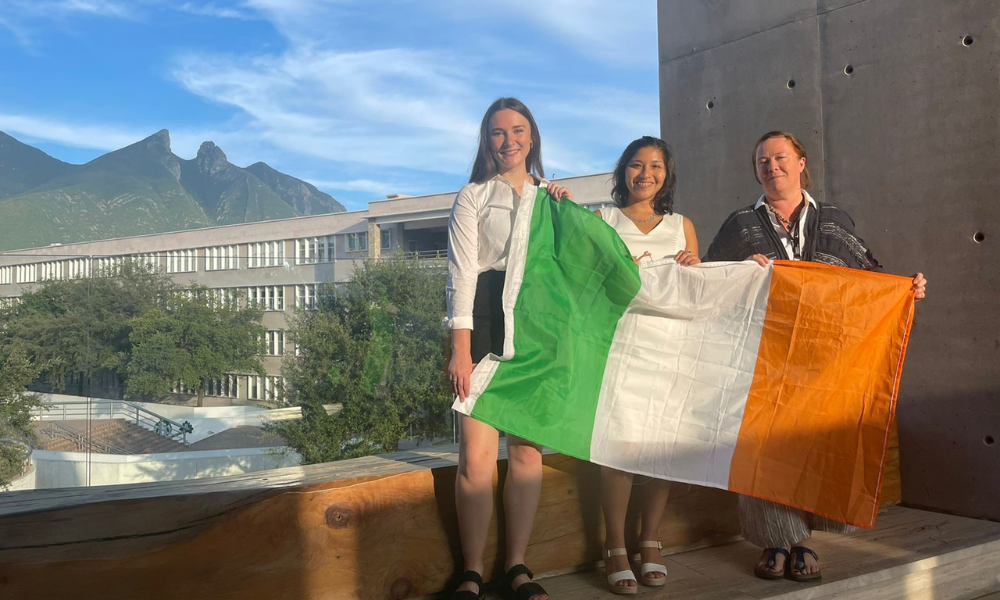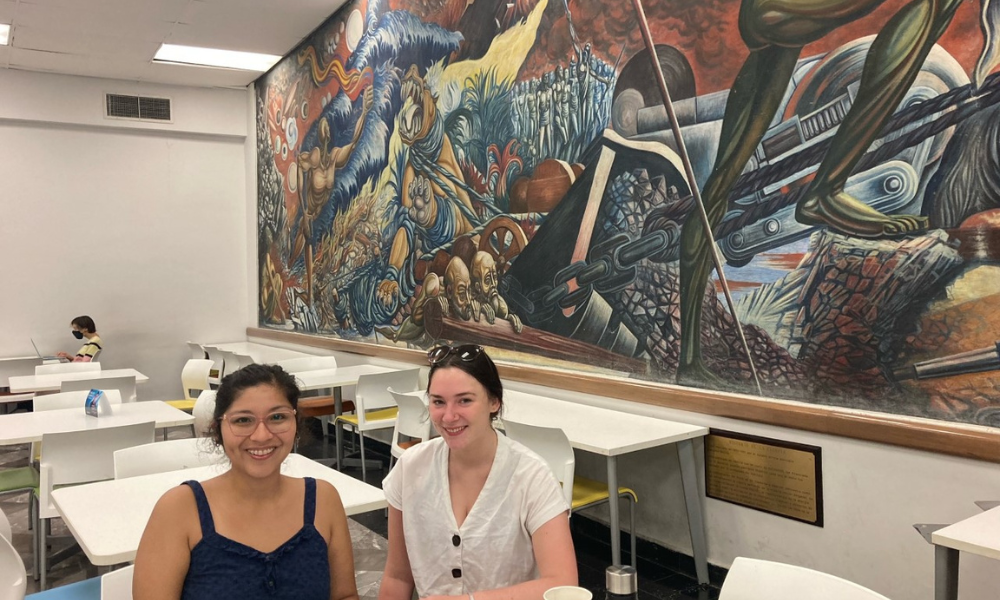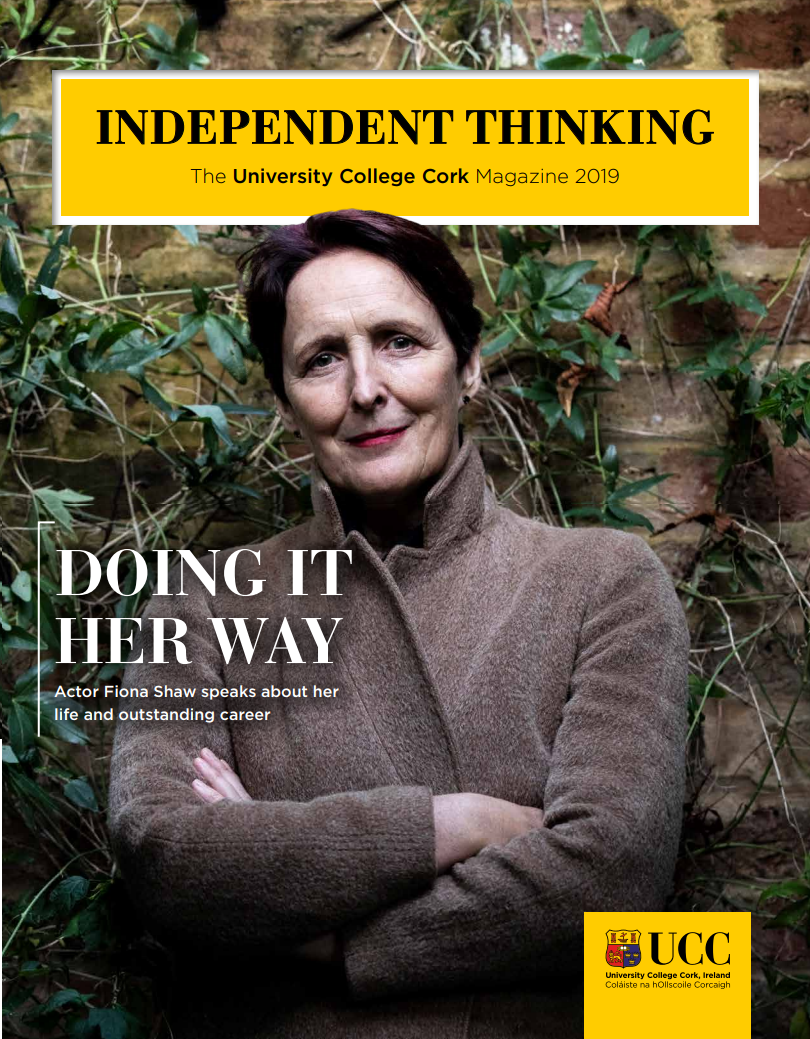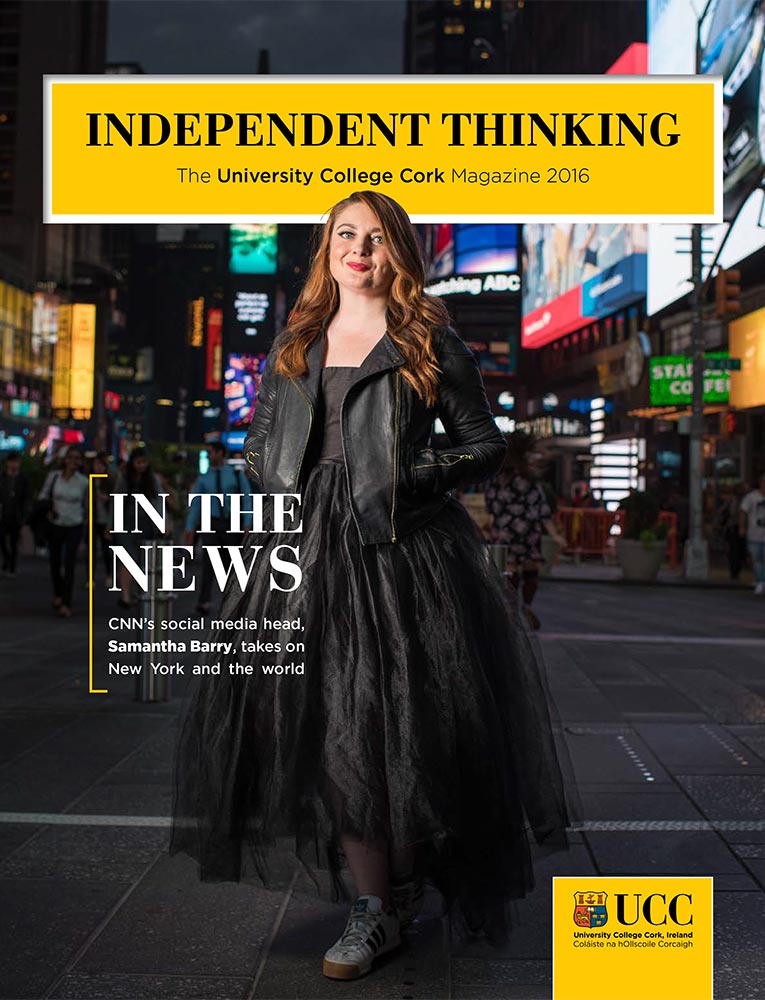Flying the Flags
UCC recently became the first Irish university to reach the finals of a major international social entrepreneurship competition, hosted this year in Mexico. Here, students Molly McGrath and Maria Torres discuss competing in the SFERA Experience, and the value of international collaboration in solving real-world problems. In conversation with Jane Haynes.

As the ‘blueprint for a better and more sustainable future for all’, it’s incredibly important for our students – the leaders of the future – to engage with the United Nations Sustainable Development Goals (SDGs); and two UCC students earned a unique opportunity to do so, after making the finals of a major international social entrepreneurship competition in Mexico this past summer.
Molly McGrath, a student of the MA Anthropology programme, and Maria Torres, who is studying the MSc Government and Politics programme online, from her native Peru, represented UCC as they proposed innovative ideas to support indigenous students in Latin America to transition into higher education, as part of the SFERA Experience.
SFERA is an annual competition that welcomes students from Ibero-American universities to work together on tackling major social and environmental challenges facing the global community, linking in with the SDGs. In July, UCC became the first Irish university to reach the finals, having been invited to compete due to its internationally recognised leadership in civil, community and Latin American engagement.
For Molly and Maria – who teamed up for the project with Karla Garcia and Alejandra Sandoval, both final-year students at UCC’s partner HEI in Mexico, Universidad Veracruzana – the experience was an exciting opportunity to apply their skills and knowledge to solving real-world problems.
This year’s competition challenge was ‘Education in Vulnerable Contexts’ – an area of great interest and passion for the UCC-UVI cohort, a unique and interdisciplinary team from Ireland, Peru and Mexico. The team proposed a systematic approach to the UN SDGs, to incorporate indigenous worldviews in each one.
Maria, a lawyer specialising in indigenous people’s rights, self-identifies as indigenous herself and currently works in an advisory capacity for indigenous organisations in Peru.
"We, as indigenous, suffer with racism in every area of society – education is one of them," she says.
"I realised that education sometimes contributes to that racism in that we end up denying or refusing our own identity. So if we want to contribute in the area of education, we must regain that identity in our universities and schools. As one of our interviewees said: we have the right to be indigenous in the education system."

Molly adds: "We found that there are certain grants and government supports in place, in both Peru and Mexico, to get indigenous people to third-level education, but the issue is that a lot of them might be coming from a rural area, and they have absolute culture shock when they make the move to a massive city, like Lima. It’s unimaginable for them; it’s life-changing – a lot of them end up backing out."
With Molly based in Peru as part of her coursework, she and Maria were able to collaborate on their research fieldwork, not only together but also with Karla and Alejandra. While the interviews they conducted with people from all sectors of the education system informed their project, the lived experiences of Maria, Karla and Alejandra – as three self-identifying indigenous women – were invaluable to their findings and eventual proposal.
"Initially, we were just going to suggest a school for indigenous people to help them make the transition to third-level education, and also to help them to come to terms with their own indigenous identity – to be able to have that self-identification," explains Molly, "but we concluded that it should be open to all people, because everyone should have to acknowledge minority world views as well as the majority world view."
For Maria, presenting at the finals of the competition, on a subject so close to her heart, was a very special moment: "I used some examples of discrimination that we suffered, so it was quite emotional, but it was great to share that. I think, since the majority of the [competition finalists] were from Latin America, they could identify with those examples. After this competition, I am inspired to tackle one of the biggest problems in education for indigenous youth and their communities - as another interviewee put it: 'The more "quality" education, the more deindigenisation'."
"Everyone should have to acknowledge minority world views as well as the majority world view" - Molly McGrath
As well as enjoying the success of reaching the finals on such a meaningful project, it’s clear that the opportunity to collaborate with interdisciplinary students from across the world was an enriching experience for all.
"It was so interesting to get new perspectives," says Molly. "I think that is what we really need – a diversity of perspectives, and just to listen to people from all different countries and backgrounds."
While both Molly and Maria are busy writing up their theses right now, their dedication and passion for their SFERA project is alive and well, and they hope to continue their research – in collaboration with Karla and Alejandra, of course – in the future. For Maria, whose interest in studying in Ireland was first sparked after a visit in 2017 – particularly after becoming fascinated by diplomat Roger Casement’s own story of self-identity with his nation – a return to the Emerald Isle is certainly on the cards. Molly, meanwhile, admits she has ‘a thirst for more in South America’ and is keen to get back to her travels.
Clíona Maher, International Strategy Officer for Latin America at UCC, described the collaborative project as “uplifting, enriching and inspiring”.
“SFERA, sponsored by philanthropic organisations interested in solving issues in Latin America, is a perfect example of the university’s leadership and global reach through its societal engagement, embedding SDGs and community engagement into our connected curriculum,” she says.
“The opportunity to work on extra-curricular collaborative online international learning (COIL) has positively supported internationalisation at home and Spanish language skills, and fostered diversity and inclusion. Opportunities for students to engage with real-world challenges is at the heart of supporting students to become socially responsible, effective global citizens, who recognise and challenge inequality."
For more information from the International Office, please visit their dedicated website.
Photography: courtesy of UCC International Office, Molly McGrath and Maria Torres.



